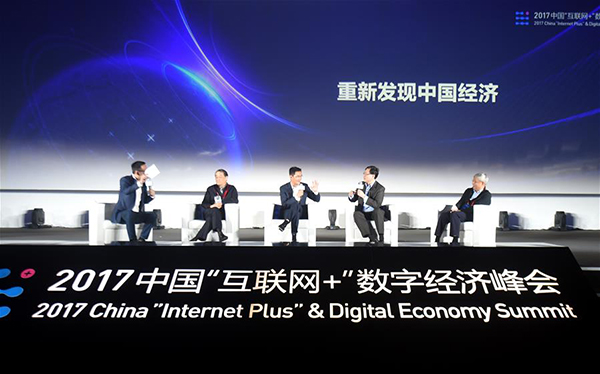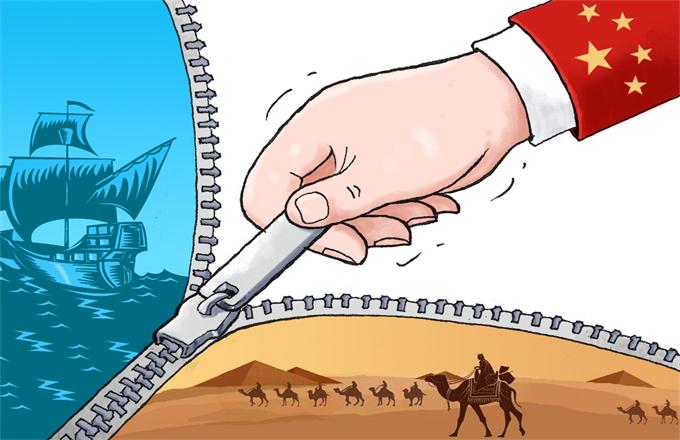Real vs virtual economy, a meaningless dispute
 |
|
Guests attend the 2017 China "Internet Plus" & Digital Economy Summit in Hangzhou, capital of east China's Zhejiang Province, April 20, 2017. [Photo/Xinhua] |
At the 2017 China "Internet Plus" & Digital Economy summit in Hangzhou, Zong Qinghou, chairman and general manager of Hangzhou Wahaha Group, discussed the impact of the internet on real economy with Pony Ma, chairman and chief executive of China's Tencent Holdings Ltd. The discussion unexpectedly turned into an argument about the real economy and the virtual economy. It is simply unwise to divide the economy into real or virtual when their integration can boost China's economic development, Xinhua commented.
There are mixed reactions about the virtual economy. Some entrepreneurs, especially electronic appliance providers, claim that the virtual economy has a disastrous impact on the real economy.
This year's first executive meeting of the State Council, presided over by Premier Li Keqiang on January 4, set the tone and gave an answer regarding this dilemma. The meeting pointed out the real economy not only contains the manufacturing sector, but also covers the first, second and third sectors. "Online shops, as a new genre of economy, boost the sales of physical factories. The delivery industry, the representative of the new economy, also promotes consumption and production. These new economic industries serve the real economy and are a part of real economy," Premier Li emphasized.
Both can play an interactive and mutually promotional role. The internet economy can even lend a hand to the traditional manufacturing sector. For example, Alibaba, the Chinese e-commerce giant, and its financial branch paid a total of 23.8 billion yuan ($3.41 billion) in taxes in 2016. And the company outdid merchants operating on its platforms, upstream manufacturers and logistics companies by paying at least 200 billion yuan in taxes last year and created more than 30 million jobs.
Therefore, the new economy will not curb the manufacturing sector. Instead, it can help promote its development. The key lies in whether there is a market for these products, and this market cannot be squeezed by the financial industry and capital markets.
With the deepening integration of the Chinese economy into the world economy, it is out of date to divide real and virtual economies. The dispute is no longer important, as long as both can be integrated to promote China's overall economic development.
- Profits show real economy recovery
- Premier Li urges upgrading real economy according to market demands
- E-commerce is real economy, also benefits the service sector
- Real economy, SOEs crucial for development of NE province: Xi
- Revive real economy in Northeast China
- Urgent need to cut flow of funds from real economy





















